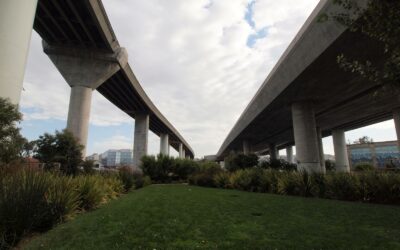Executive summary. Field experience is necessary to be a best of class construction and engineering professional. Can you or your employee relate to today’s article? Can you write your own article with similar anecdotes to these below? If you cannot, schedule some time in the field.
I built this project. I love it when I hear office construction and engineering professionals talk about how “they built Safeco Field” or “we’ll pick it with two cranes” or they have these great awards on the wall for things like “innovative project of the year”. But, did you really build it? There’s no doubt that it takes an entire team of talented professionals to build infrastructure, but I can’t think of how one can call themselves a construction or engineering professional without knowing what fresh concrete smells like.

Only in the field. Age discrimination exists because there are just some skills you can’t learn until you’ve had enough life experience. Of course, I’m talking about discriminating against younger folks, not the older workers!
Ever seen a rebar curtain hanging from a crane hook fall apart and rain down like toothpicks over a crew? Ever seen a plane crash on your jobsite? Ever seen a dead person?
These are important lessons in life, and in the construction industry. These experiences come with age and exposure to the business.

Humility is invaluable. If you’re an engineer or an architect, do you know what most guys in the field think of you? A lot of the workers think you’re a pompous ass with an attitude. Sometimes they’re right. And even with your college degrees and your fancy math skills, there is still a great deal to learn from craft persons out there. Warning: lack of humility and the existence of hubris killed many men at the Quebec Bridge in 1907. You would be surprised on how powerful it is to say to a guy out in the field “wow, I’ve never done this before, can you show me how you built this?” You may be more surprised on how much you learn.
It’s not in a book. Never stand under a load; the rigging could fail. Never stand next to a truck when it’s dumping dirt or aggregate; the truck can become unstable and tip (off-road trucks are designed to allow their bed to roll over). You learn these things when walking and talking to men and women in the field. Just like these things:
- Drilling through stainless steel – you ever try it? Good luck. It’s pretty much not doable.
- Tape measures in tenths – some tape measures are labeled in decimals, not inches.
- Pipe stretcher – there’s no such thing. This’ll be one of your greatest lessons.
- Insulation has glass fibers – when you install fiberglass insulation, the glass fibers get airborne and it scratches the heck out of your throat.
- Crane booms bounce – you ever operated a 200’ long lattice-boomed crane? Looks like a stable machine from the field office 500 yards away. Not the case, the boom wobbles and bounces.
- Road striping layout on a curve – when stripers paint the white edge line on a roadway curve they use a long rope or chain with a guy at each end and continue to flop around the rope until it takes on the curve of the road. It’s the naked eye more than anything else.
- Water tanks sway – ever climb a water tank before it’s full of water? It sways in the wind.
- Mechanical bar screen – this is the first stop for wastewater in a wastewater treatment plant and catches ALL sorts of things from jewelry to undergarments.
- Rebar stirrups in columns – every reinforced concrete column has to have stirrups. Why? Well, if not the rebar would splay out and be uncontained before the forms are installed.
My story. I’m a better person, engineer, and construction professional because of the human element of it all. And like you, “I’m too busy to get to the field.” Nonsense. Each time I’ve been, it’s been a beneficial experience.
I get to the field and try to learn something by asking questions – most guys (and women) love to share what they’re doing. I guarantee you that taking out a couple hours tomorrow to make a site visit to learn something about how your project is actually built will be two of the best hours of your week.
For me the smell of concrete reminds me of the Fort Totten Metro job in Washington, D.C. in 1989 and the smell of asphalt signifies project completion at West River Drive in Philadelphia in 1995. These are indelible memories that allow me to relate to my profession and become a more rounded professional.
Get to the field tomorrow and work safe!






0 Comments